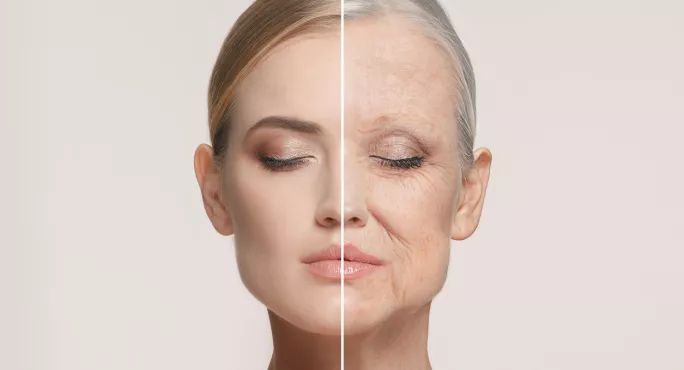Does teaching make you feel more youthful?

“Clerks, operatives and teachers are the shortest-lived of all,” according to a report in Scientific American.
This breaking news is, admittedly, from an 1858 edition of the magazine. It was further revealed that teachers tended to set off for the great staffroom in the sky at the ripe old age of around 30 to 35.
Many teachers today might well feel a connection with those predecessors. We might reflect on the stresses and strains of the past year, or on the approaching term of high-stakes marking and grading, or on the prospect of another few months of teaching in ventilated classrooms, with steamed-up glasses and inaudible masked children - all to be played out to the distant rumble of an Ofsted desperately trying to relaunch and rediscover some purpose to its life. (“What did you do in the war, Ofsted?”)
However, some brighter and more recent news has also reached us from America, and this time it’s post-Civil War. A report in 2019 found that teachers there now have the longest life expectancy of all public employees. According to the Society of Actuaries, female teachers now typically live to be 90 years old, while male teachers live until the age of 88.
Does teaching make us feel older or younger than other professions?
Assuming that the life of a teacher in America has never been vastly different from that experienced in the UK, this seems to be an impressive improvement on those 1858 findings.
We are now living nearly three times longer than we did in 1858. At this rate, some teachers next century are still going to be going strong when they are well beyond 200 years old. So plenty of retired ex-teachers will be around to help out with any future summer Covid catch-up initiatives.
Though I am less concerned here with the question of teacher longevity. I am more interested to know if teaching generally makes us feel older or younger than we would feel in other jobs, mentally and physically.
Does all that time spent with young people perhaps keep us feeling more youthful than would otherwise be the case, or do the pressures and time-consuming requirements of the job tend to override all of that? Does teaching perhaps make us tend to feel our advancing age more rapidly?
I can only speak from personal experience, obviously, but I feel that I aged much more quickly than my friends in other jobs in the first few years of our various careers. But after that - and I know this may sound a bit odd - I think my ageing seemed to slow down relative to theirs. By “slowed down” I don’t mean in some weird Picture of Dorian Gray way, where friends would contemplate my never-changing fresh face and flowing locks with awe and astonishment. Just in other, less visual ways.
Ageing 10 years in the first couple of years in the job
And I certainly did not feel younger than them at first. In my first couple of years of teaching, I think I aged about 10 years. I grappled unsuccessfully with classroom control and time management. The challenges felt huge, the work endless. I can well understand why so many give up teaching at that early stage.
At that time, whenever I met up with old non-teaching friends, I sensed how much more youth, zest and vitality they still seemed to retain. With a couple of old school friends who had also become teachers, less so.
But while teaching remained an ongoing challenge, I do think that my subsequent acquiring of experience, confidence and a degree of expertise meant that my sense of ageing began to slow, while theirs began to accelerate.
Though the demands of the job still remained considerable, the horizon began to brighten for me. I started to feel that the job was actually helping me to grow and flourish at last, after previously causing me to wilt and wither.
I began to feel rejuvenated by all those creative, energising and inspiring young people, and by the countless brilliant, supportive and enterprising colleagues. (Though, yes, the odd pupil and colleague has still been an ageing influence - let’s not get too carried away.)
But for all the job’s stresses and strains, I think teaching has aged me less and less rapidly as I have got older, relative to people I know in other jobs.
Or, at least, that is how I see it. I do realise that I may be utterly deluded, and that all of this is anecdotal. Perhaps the only real evidence present here is of just how addled and warped my mind has become as a result of teaching.
So maybe I should start to think about retirement. Though there’s no point rushing into it. Perhaps I’ll give it another 100 years first.
Stephen Petty is head of humanities at Lord Williams’s School in Thame, Oxfordshire
You need a Tes subscription to read this article
Subscribe now to read this article and get other subscriber-only content:
- Unlimited access to all Tes magazine content
- Exclusive subscriber-only stories
- Award-winning email newsletters
Already a subscriber? Log in
You need a subscription to read this article
Subscribe now to read this article and get other subscriber-only content, including:
- Unlimited access to all Tes magazine content
- Exclusive subscriber-only stories
- Award-winning email newsletters